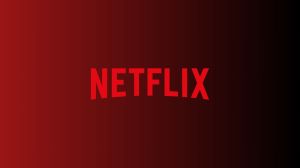After fighting the Anti-Monitor and saving the multiverse from ultimate destruction, Batwoman returned tonight on The CW in a pretty epic way. The show’s first post-“Crisis on Infinite Earths” episode came back to the conflict between Kate Kane/Batwoman (Ruby Rose) and Elizabeth Kane/Alice (Rachel Skarsten), but approached it from an angle that fans might not have been expecting. Outside of the massive cliffhanger ending in its final few seconds, this week’s midseason premiere brought a major turning point for Kate — one that completely shifted the course of the show going forward. Spoilers for tonight’s episode of Batwoman, “How Queer Everything Is Today!”, below! Only look if you want to know!
Videos by ComicBook.com
The episode opened with Batwoman saving a runaway train from crashing, only for her grappling hook to break off once the train stopped. Kate was pushed out of the grappling hook’s path by a young blonde GCPD officer named Slam Bradley, who was quickly photographed laying on top of Kate. The moment became tabloid fodder across Gotham City, with quite a lot of people shipping Batwoman and Slam, to Kate’s chagrin. The moment made Kate question how much of her personal identity as a queer woman needed to be shared with her vigilante identity, especially after being dubbed the “Paragon of Courage” in the recent Crisis.
At the same time, Kate began to investigate the runaway train, and tracked it to an elusive hacker who decided to start terrorizing Gotham City. This leads Kate to a young girl named Parker Torres, who admitted to being the hacker. As Parker explained, she had been outed as a lesbian by her ex-girlfriend to her conservative parents, who did not support their daughter’s sexuality. She orchestrated the train hack while riding inside of it, in hopes that her parents would see her brush with death as an excuse to accept her again. She then said that she was unsure if things would “get better” in terms of her accepting her sexuality, and assumed that Batwoman was the kind of mean girl who wouldn’t understand her struggle.
Parker was then kidnapped by Alice, who wanted her to hack every phone in the city and broadcast Batwoman’s true identity. Kate did agree to take off her mask and Parker instantly recognized her, while wondering why Batwoman didn’t tell her she was also gay. Later on in the episode, Kate realized the significance of Batwoman coming out as a lesbian — and arranged an interview with CATCO and Kara Danvers as a way to properly do so. The magazine, which confirmed out-front that Batwoman was a lesbian, was then read and embraced by people throughout Gotham City.
Batwoman has dealt with LGBTQ+ issues quite a bit in its first few episodes – namely in “Tell Me the Truth”, which saw Kate deal with discrimination at a restaurant she was dining at. But there’s something about her arc in “How Queer Everything Is Today” that feels pivotal and tells the kind of story that only this series could. The other Arrowverse heroes have definitely dealt with their secret identities in the past (or, in the case of Legends of Tomorrow, essentially bypassed them altogether by spending so much time time-traveling) if Arrow‘s years of back-and-forth of Oliver Queen going public with his identity are any indication.
But through the episodes of Batwoman thus far, Kate has clearly had more confidence in her civilian identity than her superhero identity. Even as we’ve seen Kate go up against countless challenges and supervillains without blinking an eye, being emotionally vulnerable has been a struggle for her. Quite a lot of queer viewers (this writer included) will probably relate to that sentiment, especially those who have the ability to “perform” straight at any point in their LGBTQ+ journey. A Twitter thread from writer and activist Alexander Leon went viral earlier this month with a similar sentiment, arguing that queer people are often forced to perform an image “that sacrifices authenticity to [minimize] humiliation and prejudice”, and spend much of adulthood trying to figure out “which parts of ourselves are truly us and which parts we’ve created to protect us”.
Watching Kate go through that struggle publicly as Batwoman feels personal and significant, especially when you couple it with the impact it has on those around her. This is seen firsthand in Kate’s relationship with Parker, who initially laments that she’s going to spend her life closeted and “aspiring to be represented by an ancillary character on every TV show”. There are still a lot of steps to be made in terms of queer representation in comic book media – and LGBTQ+ rights in our real world – but Batwoman provides an aspirational look at how a queer superhero can just exist. While this certainly doesn’t mean Kate and Batwoman won’t have to deal with prejudice in the future, it’s clear that Kate has the courage to endure it, because of the other queer people who she knows it will positively impact.
“Crisis” provided a major reset to a lot of elements in the Arrowverse — it allowed all of its heroes to coexist comfortably, with the infrastructure to rely on each other when challenges eventually arise. In a subtle way, Batwoman publicly coming out of the closet allows queer people within the Arrowverse – and those watching – to have a version of that same feeling. Regardless of wherever her journey goes next, Batwoman’s “coming out” allows her to be more than just a paragon of courage — but a public beacon of hope.
Batwoman airs Sundays at 8/7c on The CW.









